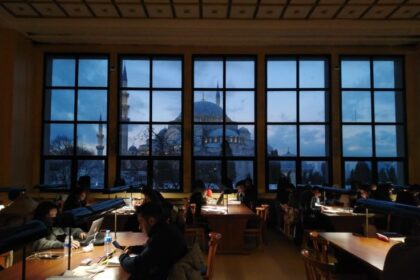Having spent 13 years studying the Cambridge curriculum in Pakistan and now engaging with the Punjab University syllabus, I have gained a deep understanding of both the international and national education systems in our country. After experiencing both systems, I often question which one is truly better and more beneficial for our nation. While many may quickly assume that the Cambridge or international systems are superior—this was a belief I once held as well—I have come to realise that the comparison between the two is not as straightforward as it may seem. Furthermore, with an increasing number of people opting for the international curriculum, an important question arises: will this division in our education systems have potential drawbacks for our youth in the future?
Comparing the International and Local Curricula
Both systems have their own distinct patterns and their own set of pros and cons; ultimately, the choice is of the individual to choose the system that best aligns with their learning preferences and goals. International curriculums such as Cambridge and IB focus more on content and depth, giving students the flexibility to present their understanding in their own distinct manner. On the other hand, Pakistan’s local curriculum prioritises the presentation of the work. Neatness, handwriting, and adherence to specific patterns play a significant role in scoring well.
Key Differences in Teaching Methodologies
The most prominent of the differences between the two is the teaching terminologies. International curriculums focus heavily on conceptual clarity and analysis of ideas, encouraging critical thinking in students irrespective of the length of one’s responses. On the other hand, the local curriculum tends to prescribe specific answer lengths for scoring marks, fostering a more structured and uniform approach to assessments.
Cultural Divide: The Hidden Consequences
Despite all the pros and cons of these systems, the fact that our youth is being taught via polar opposite methodologies should be a matter of concern for all of us. This division creates several underlying issues in society that we don’t pay attention to. The first and foremost issue that arises is the cultural divide; students in these two systems grow up in totally different cultures and often form strong opinions of one another based on their own limited hindsight. Later, when these bubbles pop, students like myself find it difficult to adapt. A few may even form a sense of dislike for one another, creating several issues for this already intolerant society.
The Realities of Employment and the Brain Drain
By this time, we have all heard:
“What is the benefit of doing the O Levels program in Pakistan”
or:
“Of course, the Cambridge students will get all the good jobs.”
Well, I hate to break it to you in the times we are all living in when every sector is extremely saturated and unemployment has become a stagnant issue. Whether you study the local curriculum or the international ones, the chances of anyone landing a well-paid, decent job remain thin. However, this is a known fact: students who study the international curriculum often prioritise moving abroad rather than staying in Pakistan and contributing to its success, hence leading to a brain drain and depriving the country of some of its greatest minds.
The Blessing of Choice and the Need for Inclusivity
Acknowledging all the grievances of this educational divide and setting them aside, we cannot overlook the various perks of this system. First of all, to even be given the option of the education system they want to choose for their specific goals in life is a huge blessing. It allows both students and parents to align their educational journey with their aspirations.
Moving Towards Complementary Systems: A Vision for Reform
However, these choices should not exist at the cost of equity and inclusivity. The goal should be to ensure that both of the systems evolve in such a manner that they complement each other rather than being polar opposites.
For Pakistan to be able to achieve this, significant reforms are needed to uplift the local education system by introducing critical thinking, modern pedagogical methods, and global perspectives while also grounding international systems in cultural and national values.
















